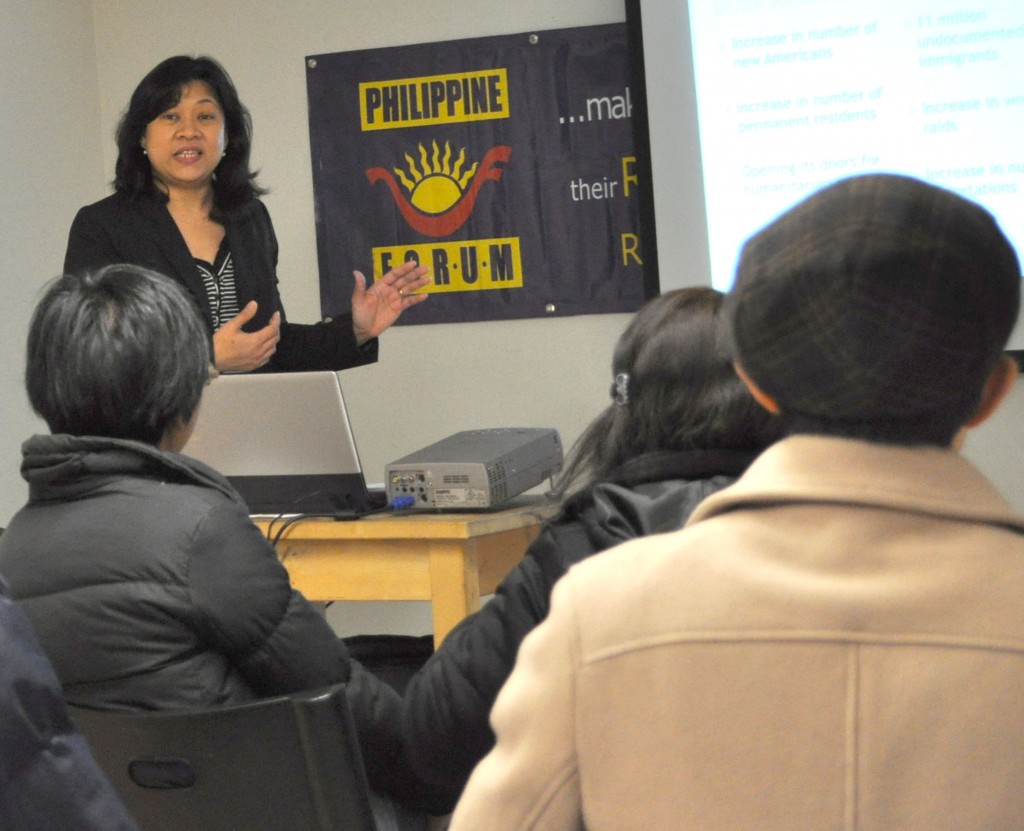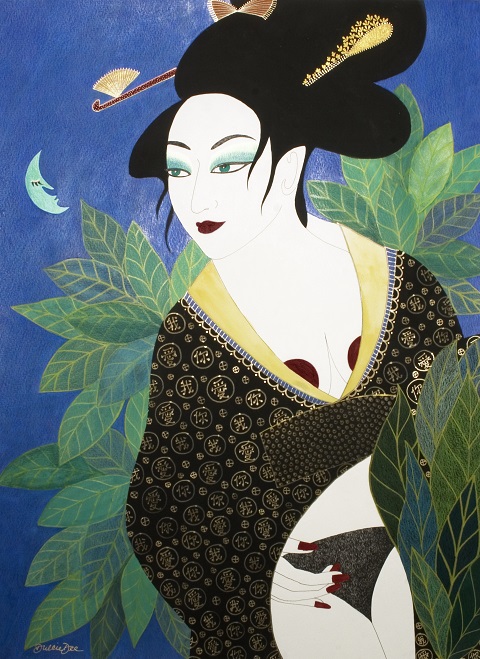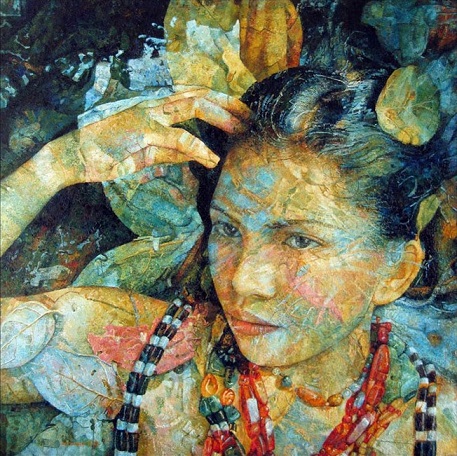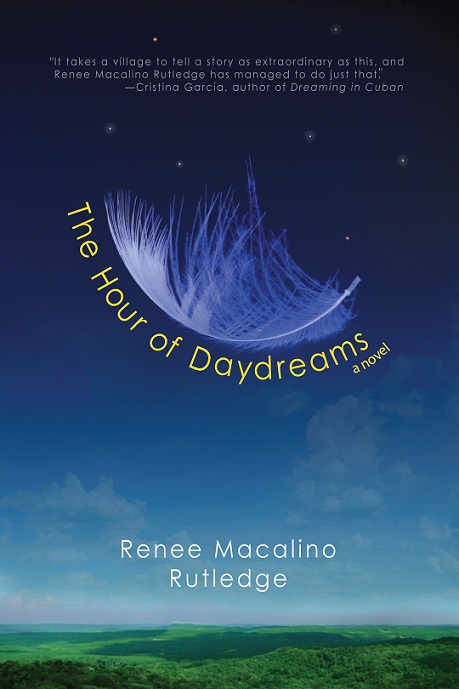Magical wings and mail-order brides in Renee Macalino Rutledge’s debut novel

Born in Manila, raised in California, Renee Macalino Rutledge lives in San Francisco with her husband and two daughters.
Like many western fairy tales, “The Hour of Daydreams” opens with Malaya, a distraught girl who’s been left motherless. But unlike many of those traditional tales, this novel explores the myths and truths of a mother’s departure.
Debut novelist Renee Macalino Rutledge draws from a Filipino folk tale and weaves two skeins of story: one is a trickster tale of a shape-shifting angel; the other is an exploration of the scourges that breed from hunger — the sordid underbelly of prostitution, mail-order brides, and human trafficking. Both narratives offer plausible explanations for the mother’s disappearance. Yet, like Malaya, readers must interpret the story for themselves.
After his best friend’s death, a young doctor named Manolo grieves by a river near his country village. There he spots a beautiful woman named Tala bathing with her six sisters. Night after night, he spies on them, watching as they leave the water, attach their wings, and fly away. One day, he hides Tala’s wings. Unbeknownst to him, Tala has been watching him all along. She follows him, marries him, and bears a daughter.
The story is based on a folk tale about a woodsman who finds a star fairy sleeping by a river. Her wings are broken and she is unconscious, so he takes her home to nurse her to health. When her wings heal, they propel her upwards into the heavens, anguishing them both, for they have fallen in love. The ruler of the star kingdom permits the fairy to descend a multi-colored ribbon and visit him. When rainbows appear, the star fairy is meeting with her woodsman lover.
In “The Hour of Daydreams” readers enter a magical world inhabited by ghosts and sprites called “duwendes,” a porous reality where dreams might come true. As readers, we journey through that world, hoping magic will keep Manolo and Tala together, knowing full well that adversities often stymie fairy tale lovers. Readers awaken from dreams when a ne’er do well brother enters the scene ready to collect from the sister who escaped before he could sell her as a mail-order bride. Macalino Rutledge deftly weaves the narratives and cleverly lays down clues that result in the ethereal mother’s exodus.
Macalino Rutledge’s novel touches many themes — family secrets, magic, dualities, and the sinister and inescapable grip of poverty. In an essay titled, “The Useful Dangers of Fairy Tales,” author Amber Sparks suggests that the reasons so many mothers are absent in fairy tales is because survival was precarious in olden times. Mothers were downed by childbirth, early death, not to mention rapes, beatings, and even murder. Fairy tales prepared girls and young women to fend for themselves without their mothers. While women live longer today, contemporary life continues to place them at risk. The darker version of the novel embraces this theme.
Yet one theme rises above the rest. “The Hour of Daydreams” is a story about spinning yarns that transcend grim realities and create beauty out of the ugly and ordinary. Hints of this theme of transcendence may be found in an almost inconsequential line about a child victim of incest. Macalino Rutledge writes:
“The school girl on her way home from school, reluctant because her father did not treat her like his little girl, and so her eyes escaped to another place, leaving her body behind so that she couldn’t walk in a straight line.”
In a similar vein, Malaya’s grandfather conjures up a tale about Tala’s departure. With full open wings, Tala tries to snatch Malaya from her grandfather’s arms. She is a magnificent monster no longer able to hide her true nature. That nature may be a sordid past that catches up with her or an angelic existence that cannot conform to mortal existence.
Told in a nonlinear fashion through multiple perspectives, “The Hour of Daydreams” is a gem of a book. Lush and richly imagined, its sensual and lyrical prose keeps readers in suspense over the lover’s fates. In essence, “The Hour of Daydreams” does what its characters do: it creates beauty out of hurt and pain.
© 2017 The FilAm
Sara Campos is a multi-genre writer, consultant, and lawyer. She has published fiction, poetry and nonfiction articles in a number of publications including, St. Anne’s Review, Rio Grande Review, Great River Review, Colorlines, AlterNet Media, the San Francisco Chronicle and the Los Angeles Review of Books. She is also the recipient of the Letras Latinas Fellowship, an Elizabeth George Foundation grant, and residencies with Hedgebrook and the Anderson Center.













